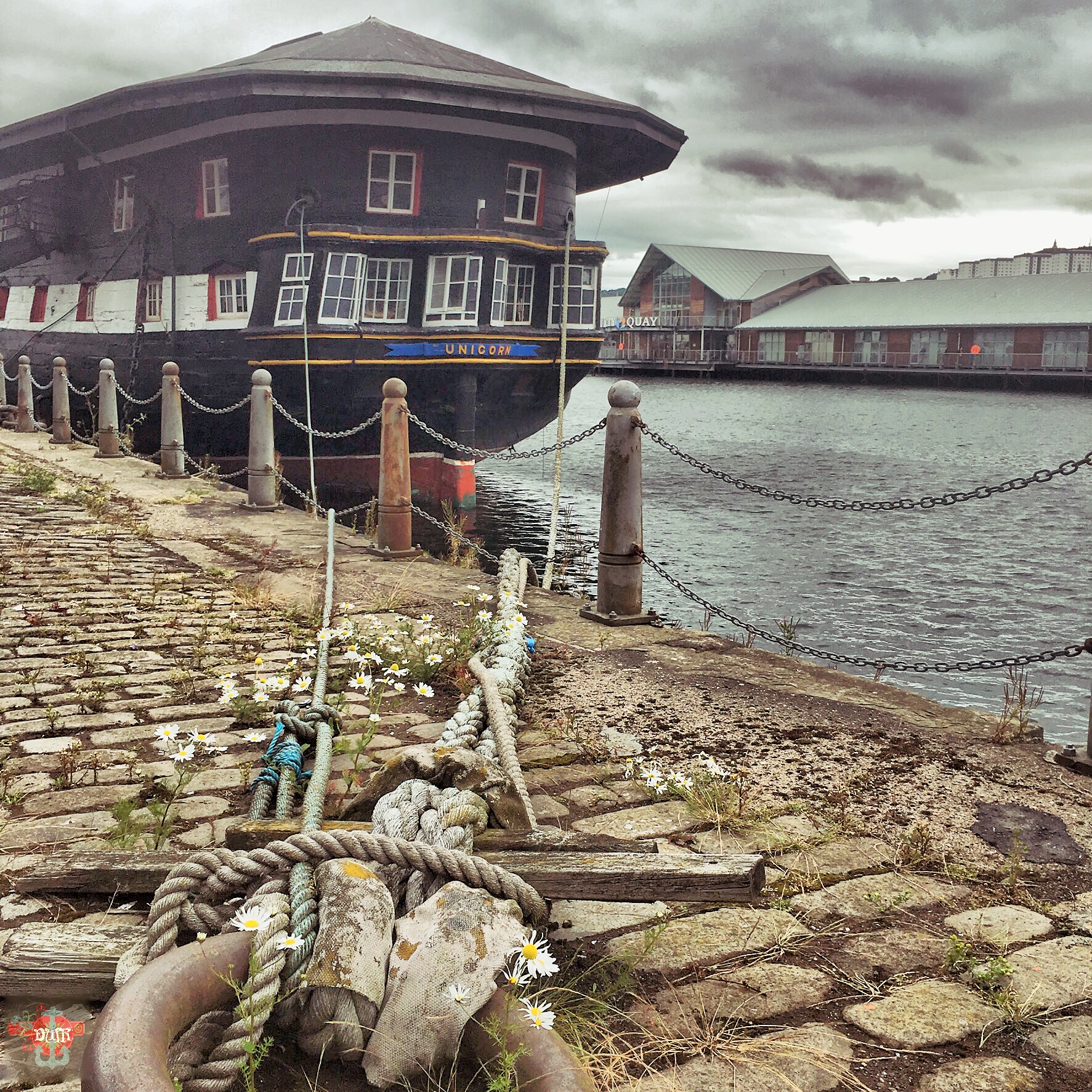Sponsors
National Historic Ships UK acknowledges the financial support of its sponsors
Saturday 30th March marks 200 years since HMS Unicorn was launched into the River Medway, Kent, in 1824.
Requiring around 1,000 oak trees to build and costing over £26,500 (around £2.4 million in 2024 prices), Unicorn was designed to be an agile and powerful vessel, with a complement of 300 men required to crew her. Awaiting commission, the Royal Navy added the ship’s distinctive roof to preserve the vessel. As a result of this continuous protection, Unicorn is now the most original historic vessel left in the world.
Unicorn was never called to battle and by the 1850s she was being used to store gunpowder. In 1873 she found new purpose as a training ship in Dundee for the Royal Naval Reserve. In 1873 she was towed to Dundee by steamship, arriving in November 1873. The ship has been a prominent site of Dundee’s waterfront ever since and is now one of the city’s oldest landmarks.
From 1874 to 1968, HMS Unicorn spent almost 100 years in the service of the Royal Naval Reserves (RNR) and Royal Naval Volunteer Reserves (RNVR). At the time of the ship’s arrival in Dundee in 1873, the city had the largest naval reserve unit in Scotland. Unicorn’s century as a naval reserve ship saw thousands of recruits train on board, including over 1,500 from the Women’s Royal Naval Service (WRENS). The ship also played an important role in both the First and Second World War, acting as a recruiting station and naval headquarters for the Tay region.
Famously HMS Unicorn is the only wooden ship to have received a surrender from a submarine – on 14th May 1945, a week after the end of the Second World War, German U-Boat U-2326 arrived off the entrance to the Tay flying the black flag of surrender, and the commanding officers were taken aboard and interrogated on HMS Unicorn.
In the 1960s, the Admiralty considered breaking up HMS Unicorn and scrapping one of the few survivors of Britain’s sailing navy. In order to preserve the ship for future generations, the Unicorn Preservation Society (UPS) was formed. On 26th September 1968, HRH the Duke of Edinburgh accepted the ship from the Ministry of Defence on behalf of the UPS, in whose care she remains today.
In recent years, the Unicorn Preservation Society has achieved significant progress toward the major conservation works now required by Scotland’s oldest ship. HMS Unicorn was awarded National Historic Ships UK's Excellence in Maritime Conservation award in 2022, and became an Accredited Museum in 2023, attracting record numbers and gaining national recognition for its excellent “WaveMakers” volunteering programme.
“Project Safe Haven” plans to deliver Unicorn into dry dock in Dundee’s Victoria Dock, and create a purpose-built visitor centre on disused land, alongside major conservation works on the ship. The charity is actively seeking funds for this major project, you can support by become a ‘Shipmate’ (more information on our website including member benefits) and please keep an eye open throughout our bicentenary period for engaging and interesting ways to get involved – they will all be posted on our website and social media.
Matthew Bellhouse Moran, Director: Museum and Development, said:
“We are delighted to launch in 2024 our two-year programme of celebrations and events marking an astonishing 200 years of history as one of the oldest ships in the world still afloat today. We are grateful to the citizens of Dundee for making us feel at home for the last 151 years, and are now looking to securing the future of Unicorn for the next 200 years. We have an exciting programme of events planned over the next two years to celebrate. This year alone will see our official anniversary launch with a reception in April, June is the world-premiere of our commissioned brass ensemble piece “When the brazen bands shall play” by Michael Betteridge, funded by the Imperial War Museums 14-18 Now Fund, and our 200th Anniversary Music Festival in will run September with local musicians performing over two days on board the ship.”
 Zone
Scotland
Zone
Scotland
National Historic Ships UK acknowledges the financial support of its sponsors